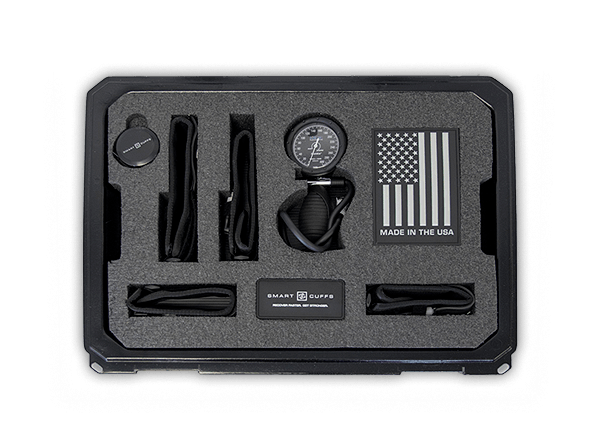The acronym BFR stands for Blood Flow Restriction. Hmm. That doesn’t sound good. Except that it is. In the right circumstances. Over the coming weeks we will be writing about all the ways in which BFR treatment can help you. Because there is just too much to put in one blog!
This week, we will look at Blood Flow Restriction actually is, and who it can help.
What BFR Actually Is
BFR – also known as Occlusion Training or Hypoxi Training – was originally pioneered in Japan in the 1970’s by Yoshiaki Sato. By 2011 the US Military started to experiment in its use on injured soldiers to help skin and tissue grafts heal, and to strengthen limbs in preparation for prosthetics.
In essence, BFR is about profusing the muscles in use with blood. Within the body, arteries take the blood into a muscle, and veins take the blood away from the muscle. Partially restricting the outward flow of blood from the muscle, causes the muscle to swell with a build up of blood, metabolites and lactic acid. The metabolites stimulate muscle growth, the lactic acid increases protein synthesis, and the muscle cells reach a point where they are so full of fluid they can either grow or burst. The result of all this is that the muscle improves in strength, size and functional aerobic capacity in shorter amounts of time with less stress on the body than normal training.
The restriction of blood flow is achieved by specially designed cuffs – something like an old fashioned blood pressure cuff – which are inflated to restrict the veins. These cuffs are placed at the top of the muscle. It is important to get the tightness right. If the cuff is too tight blood flow into the muscle can be compromised, and if it is not tight enough, the blood will not profuse the muscle.
The cuffs are used during training and exercise. Studies have shown that by using BFR you can reduce the weights used in training – by up to as much as 80%. This reduces the stress on your joints. Even uncuffed muscles benefit, as the nervous system senses the increased fatigue in the cuffed muscles, and directs the body to engage related muscles to compensate.
Uses of BFR
The many uses of BFR are still being explored. However, there is a great deal of research evidence to confirm that BFR is ideal for:
- Prehab and rehab in surgery patients, or those recovering from accidents or injury
- Performance recovery for athletes after competition
- Muscle growth and increased strength
- Improvement of cardiovascular function
- Increased muscular hypertrophy
- Improvement of muscular atrophy in disused muscles
Who Can Benefit
BFR can be used by anyone wishing to increase the size and strength of their muscles. It is particularly appealing to weight lifters and body builders, as well as any sports people needing to improve their performance or endurance, or wishing to aid recovery after a game or match.
However, there are also medical uses for BFR. Patients who are bedridden are at risk of muscular atrophy and can benefit from BFR, as can those in a cast or brace for extended periods. It can also be used to improve the strength of muscles in the elderly to improve balance and prevent falls.
But wait, there’s more
Studies have shown that changes to cardio output are lower when using BFR in training, than traditional training methods. Research also suggests that blood clots may break down with the use of BFR.
Important to Note
It is really important to be aware that BFR is about partial restriction of the veins. You must not completely block the flow, or block arterial blood flow into the muscle. It is therefore important that you see a trained professional who know where to place the cuffs, and how tight they need to be to provide the optimum benefit.
SmartTools and BFR
Recently Smart Tools developed and released a state of the art range of BFR Cuffs. Practitioners at Precision Health Spine & Sports Clinic at Baulkham Hills are fully trained in the use of these cuffs. Under their supervision and instruction you can rent this equipment for use at home as part of a structured training programme which the practitioners will work through with you, specific to your needs.
If you think you might benefit from BFR Treatment, or are interested in learning more, contact our Hills District Clinic on 9639 7337 to make an appointment to see one of our qualified BFR practitioners.



